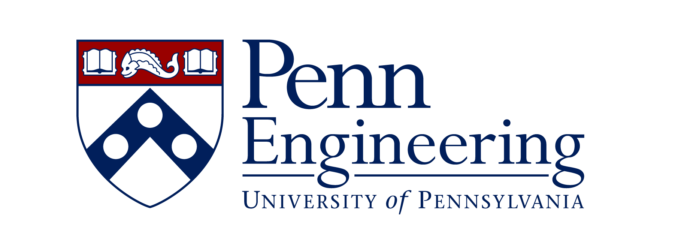Two new Masters level programs, the Scientific Computing Master’s Program (SCMP) and the Data Science Master’s Program (DATS) have been developed within the School of Engineering and Applied Science to address this evolving landscape and to provide training for students interested in a broad range of careers. These two program share a common core consisting of courses in mathematical foundations, computer programming, machine learning, and data analytics. However, they also are distinct in important ways: the SCMP program emphasizes application of modern computer simulation methods in fields related to natural science and engineering, while DATS focuses on statistical methods in a broad range of application domains.
Typically (but not exclusively), DATS candidates may have backgrounds in a broad range of fields and are principally interested in furthering their knowledge in data science methodology.
Typically (but not exclusively), SCMP candidates have a background in a natural science or engineering discipline, interest or prior experience with scientific computing, and seek to learn how to deploy and use data science and machine learning techniques
In both cases, some prior programming experience is useful but not absolutely required. Students who have a weak programming background but are interested in SCMP or DATS, and who wish to have a strong technical background upon graduation, are encouraged apply to the Master’s of Computer and Information Technology (MCIT) program and apply for a dual-degree with SCMP/DATS after the first semester. The MCIT program is designed for students with no prior experience in computer science. Students in this program learn programming, discrete math, data structures and algorithms, computer architecture, and software engineering, along with a number of other electives in computer science and engineering. Graduates of this program are well positioned for a variety of software engineering and project management jobs in the tech industry.
Prospective students are encouraged to decide which of these two programs, SCMP or DATS, is the best match for their interests and apply to at most one.
DATS and SCMP Program of Study: An overview
| Foundations | Core |
Technical and Depth Area Electives |
|||
| DATS | SCMP | DATS | SCMP | DATS |
SCMP |
| Programming Languages & Techniques
|
Programming Languages & Techniques
|
Mathematical Foundations
STAT 512 or CIS 515 or
AND
Big Data Analytics
AND |
Mathematical Foundations
AND
Big Data Analytics
CIS 545 or
AND
Mining and Learning
CIS 519 or CIS 520 or ENM 531 or ESE 545 or
|
Students must choose:
Courses from 3 different buckets, one bucket of which can be a 2 semester sequence of thesis/practicum. Two of the courses must represent a depth sequence, which could be the thesis/practicum or (for bucket options B-I) two courses, one of which builds on the other (e.g. is a prerequisite). |
Students must choose:
2 courses from Section H (Simulation Methods for Natural Science/Engineering)of Methods AND 2 courses from either Section A (Application Thesis/Independent) or Section D (Natural Science/Engineering) of Applications AND One course from any bucket AND One free elective (subject to approval) |
BUCKETS for Technical & Depth Area Electives
Applications
- Brain-Computer Interfaces (BE 5210)
- Network Neuroscience (BE 5660)
- Advanced Methods and Health Applications in Machine Learning (BMIN 5210)
- Natural Language Processing for Health (BMIN 5220)
- Fundamentals of Computational Biology (CIS 5360)
- Biomedical Image Analysis (CIS 5370)
- Theoretical and Computational Neuroscience (PHYS 5850)
- Ethical Algorithm Design (CIS 5230)
- Econometrics I- Fundamentals (ECON 7050)
- Econometrics III: Advanced Techniques of Cross-Section Econometrics (ECON 7210)
- Econometrics IV: Advanced Techniques of Time-Series Econometrics (ECON 7220)
- Applied Probability Models in Marketing (MKTG 7760)
Methods
- Software Systems (CIS 5050)
- Databases and Information Systems (CIS 5500)
- Advanced Programming (CIS 5520)
- Internet and Web Systems (CIS 5550)
- Programming and Problem Solving (CIS 5590)
- Software Engineering (CIS 5730)
- Computer Systems Programming (CIT 5950)
- Data and Analysis for Marketing Decisions (MKTG 7120)
- Business Analytics (OIDD 6120) (limited to MBA students only)
- Forecasting Methods for Management (STAT 5350)
- Accelerated Regression Analysis (STAT 6210) (limited to MBA students only)
- Predictive Analytics for Business (STAT 7220)
- Sample Survey Methods (STAT 9200)
- Observational Studies (STAT 9210)
- Modern Regression for the Social, Behavioral and Biological Science (STAT 9740)
- Artificial Intelligence (CIS 5210)
- Deep Learning for Data Science (CIS 5220)
- Computational Linguistics (CIS 5300)
- Machine Perception (CIS 5800)
- Computer Vision (CIS 5810)
- Advanced Topics in Machine Learning (CIS 6200)
- Theory of Machine Learning (CIS 6250)
- Advanced Topics in Natural Language Processing (CIS 6300)
- Advanced Topics in Machine Perception (CIS 6800)
- Graph Neural Networks (ESE 5140)
- Principles of Deep Learning (ESE 5460)
- Learning in Robotics (ESE 6500)
- Modern Data Mining (STAT 5710)
- Advanced Linear Algebra (AMCS 5141)
- Algorithms (CIS 5020)
- Computational Learning Theory (CIS 6250)
- Randomized Algorithms (CIS 6770)
- Algorithms & Computation (CIT 5960)
- Numerical Methods (ENM 5020)
- Data-driven Modeling and Probabilistic Scientific Computing (ENM5310)
- Introduction to Optimization Theory (ESE 5060)
- Data Mining: Learning from Massive Datasets (ESE 5450)
- Simulation Modeling and Analysis (ESE 5030)
- Convex Optimization (ESE 6050)
- Information Theory (ESE 6740)
- Stochastic Models (OIDD 9300)
- Statistical Methods 1 (STAT 5150)
- Bayesian Statistical Theory and Methods (STAT 9270)

